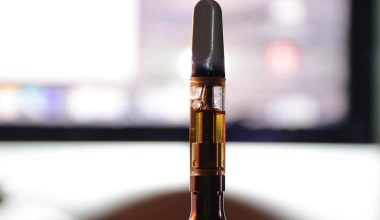A measure to expand Iowa’s medical cannabis program to include THC-rich products passed the House of Representatives’ Committee on Public Safety on Tuesday but limits patient access to just 4.5 grams of cannabis above 3 percent THC over 90 days.
The recommendation came directly from the state’s medical cannabis board last November. Rep. Jarad Klein (R) told Iowa Public Radio that the bill uses the same recommendation from the board because “that’s where the governor is.” Republican Gov. Kim Reynolds vetoed a medical cannabis expansion last year that would have removed THC limits and allowed patients to purchase 25 grams of THC over 90 days, among other changes.
“We know that 25 [grams] is too high. We know that 4.5 [grams] may be too low for some people. So we’ll see if there’s middle ground to be found,” Klein said in an interview with Iowa Public Radio.
Rep. John Forbes (D), who is also a pharmacist, indicated he would not support the measure with its low quantity cap because some of his pharmacy patients are already using beyond those limits and some have replaced opioids with medical cannabis.
“And it’s having positive impacts on people’s quality of life. And how we can pull back and do this to patients here in the state of Iowa is very disconcerting to me as a legislator and a pharmacist.” – Forbes, to Iowa Public Radio
In addition to removing THC limits and setting the cap, the measure would permit physician assistants, podiatrists, and nurse practitioners to certify patients for the program. It would also shift the responsibility of issuing identification cards for medical cannabis patients from the state Department of Transportation to the Department of Public Health.
Medical Disclaimer:
The information provided in these blog posts is intended for general informational and educational purposes only. It is not a substitute for professional medical advice, diagnosis, or treatment. Always seek the advice of your physician or other qualified healthcare provider with any questions you may have regarding a medical condition. The use of any information provided in these blog posts is solely at your own risk. The authors and the website do not recommend or endorse any specific products, treatments, or procedures mentioned. Reliance on any information in these blog posts is solely at your own discretion.






